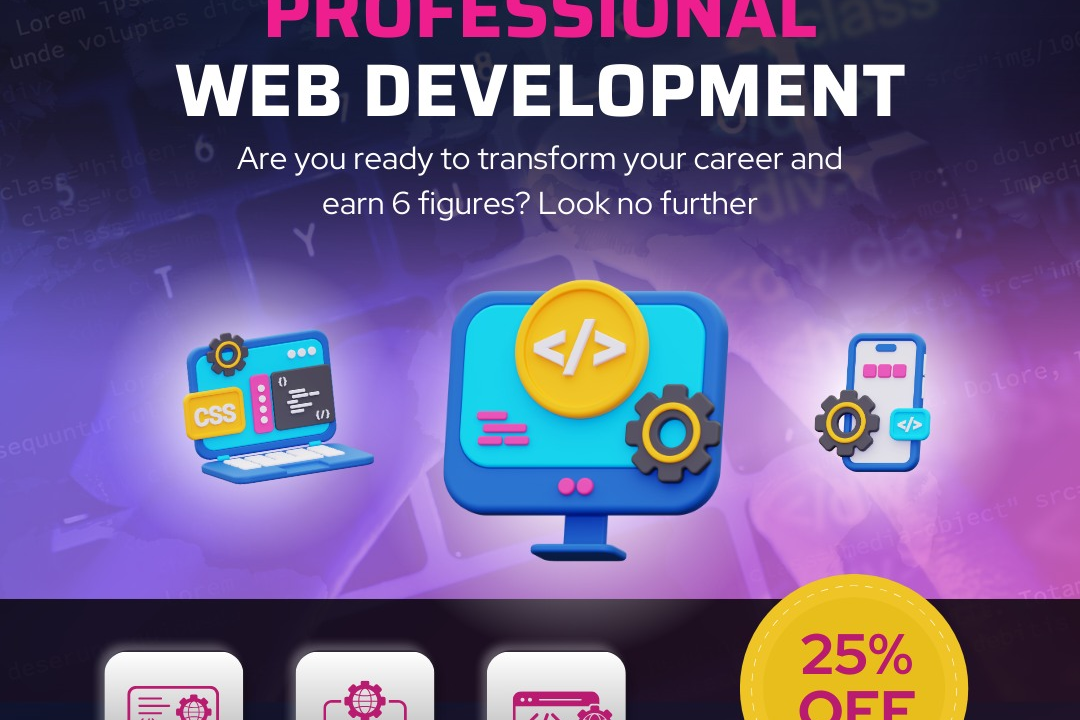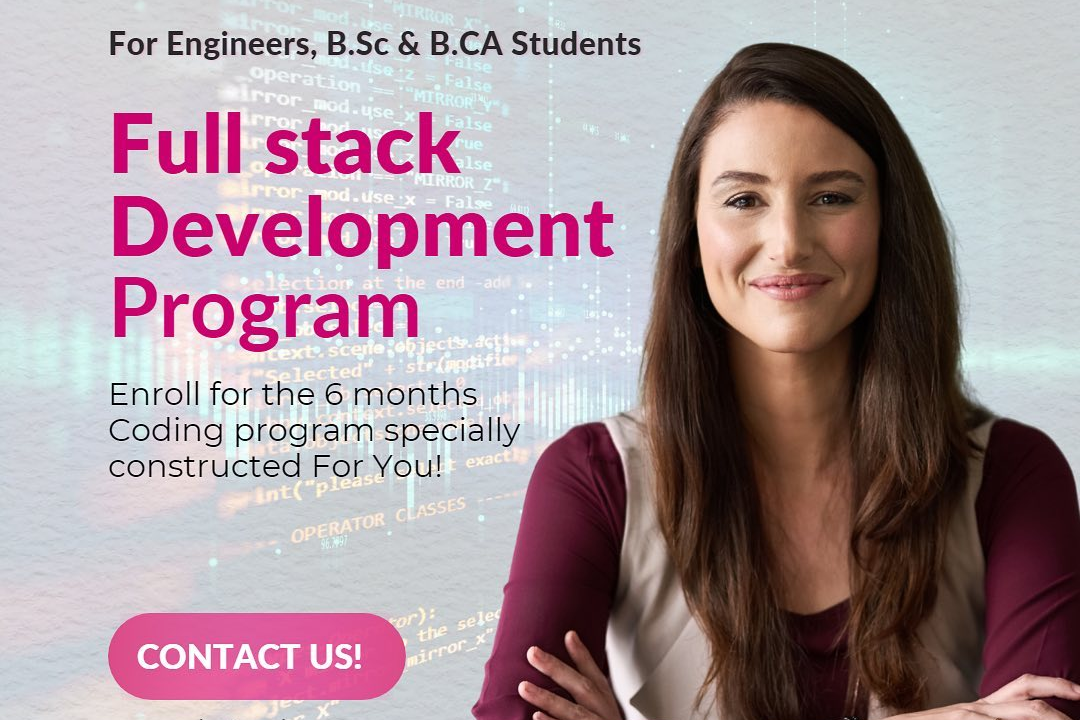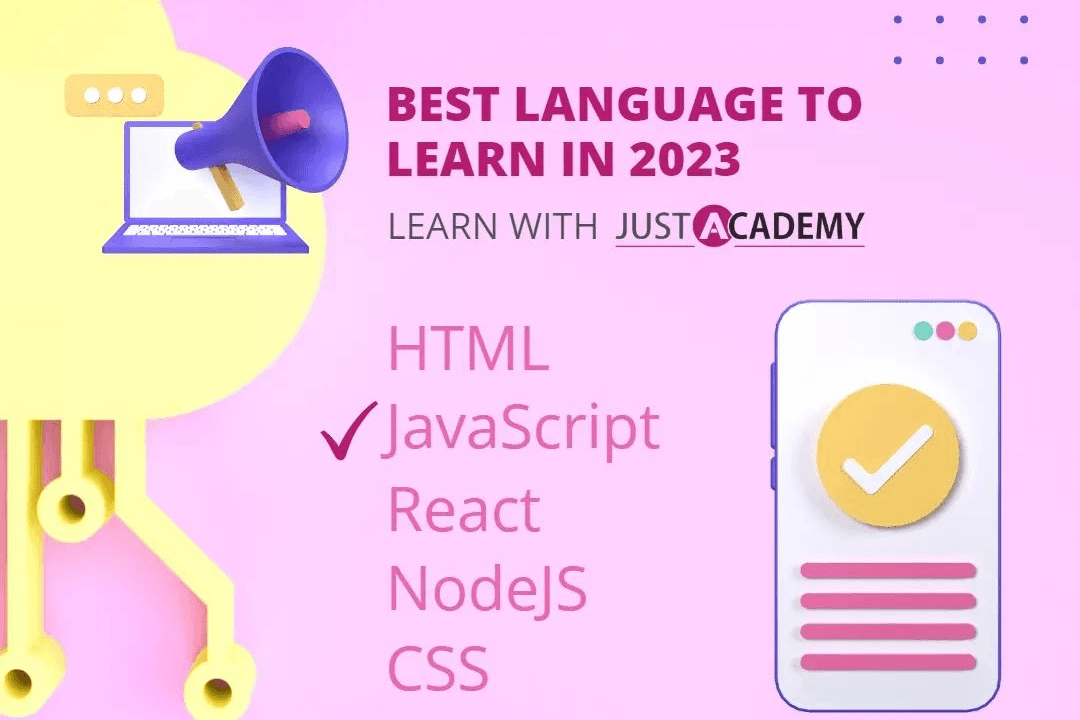Laravel Badic Interview Questions
Laravel Basic Interview Questions for Beginners
Laravel Badic Interview Questions
Laravel is a popular PHP framework that provides a robust and expressive syntax for building web applications. Mastering the basics of Laravel is crucial for developers seeking employment in the industry. Interview questions focused on Laravel fundamentals, such as routing, controllers, views, and middleware, assess a candidate's understanding of the framework's core concepts and their ability to apply them in practical scenarios. These questions not only evaluate technical proficiency but also demonstrate a candidate's problem-solving and analytical skills. A strong grasp of Laravel's foundation is essential for productivity and efficiency in developing high-quality web applications.
To Download Our Brochure: https://www.justacademy.co/download-brochure-for-free
Message us for more information: +91 9987184296
1 - What is the MVC architectural pattern used in Laravel?
MVC (Model View Controller) is a design pattern that separates the application into three distinct parts: the model, the view, and the controller. The model represents the application's data and business logic, the view is responsible for displaying the user interface, and the controller handles the user's interaction with the application.
2) What is the purpose of the Laravel Eloquent ORM?
Eloquent provides an object relational mapping (ORM) layer that allows you to interact with your database in a more object oriented way. It allows you to define models that represent your database tables, and you can then use those models to perform CRUD (create, read, update, delete) operations on your data.
3) What is the Blade templating engine used for in Laravel?
Blade is a simple and powerful templating engine that allows you to easily create dynamic views for your application. It provides a variety of features that make it easy to work with data, control flow, and loops.
4) How do you handle user authentication and authorization in Laravel?
Laravel provides a built in authentication and authorization system that makes it easy to protect your application from unauthorized access. You can use the built in middleware to protect routes, and you can use the user model to manage user accounts.
5) What is the purpose of the Laravel service container?
The Laravel service container is a dependency injection (DI) container that allows you to easily manage and resolve dependencies throughout your application. You can bind classes, interfaces, and closures to the container, and then retrieve them later in your code.
6) What is the difference between a route and a controller in Laravel?
A route is a mapping between a URL and a controller action. When a user requests a URL, Laravel checks the routes to find the corresponding controller action and then executes it. A controller is a class that contains the logic for handling a particular request.
7) What is the purpose of the Laravel migration system?
The Laravel migration system allows you to create and manage your database schema. When you create a new migration, it will generate a PHP class that defines the changes to be made to the database. You can then run the migration to apply the changes to your database.
8) What are some of the most popular Laravel packages?
There are a number of popular Laravel packages that can help you extend the functionality of your application. Some of the most popular packages include:
Laravel Cashier: A package that makes it easy to accept payments using Stripe.
Laravel Envoy: A package that helps you manage SSH tasks and deployments.
Laravel Socialite: A package that makes it easy to authenticate users using social media providers.
9) What is the purpose of the Laravel queue system?
The Laravel queue system allows you to queue jobs to be processed later. This can be useful for tasks that take a long time to complete, or for tasks that you want to run in the background.
10) What are some of the best practices for writing Laravel code?
There are a number of best practices that can help you write clean and efficient Laravel code. Some of the most important best practices include:
Use a consistent coding style.
Follow the Laravel naming conventions.
Test your code thoroughly.
Use the Laravel DebugBar to help you identify any performance issues.
How to Get More Points on a Test
Before the Test
- Study consistently: Start studying well in advance of the test and spread out your studying sessions over time.
- Understand the concepts:* Don't memorize facts; instead, focus on understanding the underlying principles and theories.
- Review regularly:* Regularly review what you've studied to reinforce your memory and identify areas where you need more practice.
- Take practice tests:* Simulate the actual test environment by taking practice tests under timed conditions.
- Get enough sleep:* A well rested brain performs better on tests. Aim for 7 9 hours of sleep the night before.
- During the Test
- Read the instructions carefully:* Make sure you understand the format and requirements of each question.
- Manage your time wisely:* Allocate more time to difficult questions and less to easy ones.
- Answer as many questions as possible:* Even if you're not sure about an answer, make an educated guess.
- Pace yourself:* Don't rush through the test. Take your time and check your answers before moving on.
- Use the materials provided:* Utilize any notes, calculators, or formulas that are allowed during the test.
- After the Test
- Review your answers:* Go back over your test after you've finished to identify any mistakes you made.
- Learn from your mistakes:* Analyze the questions you answered incorrectly to understand why you made those errors.
- Develop a study plan:* Based on your review, identify areas where you need additional study and create a plan to improve your understanding.
- Additional Tips
- Attend class regularly:* Class lectures provide valuable information and clarify concepts.
- Take notes effectively:* Use a note taking system that helps you organize and remember key points.
- Ask for help when needed:* Don't hesitate to ask your teacher, classmates, or a tutor for assistance.
- Stay positive and confident:* A positive mindset can boost your performance on tests.
- Reward yourself:* Celebrate your successes on tests to stay motivated and improve your confidence.
- Course Overview
- This course covers fundamental interview questions focused on Laravel, a PHP framework. It covers essential concepts such as routing, controllers, migrations, and Eloquent ORM. Candidates will gain insights into Laravel fundamentals, best practices, and troubleshooting techniques, preparing them to confidently ace Laravel-based interviews and showcase their knowledge in Web Development with Laravel.
- Course Description
- This course covers essential Laravel interview questions, empowering you to confidently navigate the technical aspects of interviews for Laravel development roles. It provides a comprehensive overview of Laravel fundamentals, including database interactions, routing, controllers, views, migrations, testing, and more. By mastering these concepts, you can demonstrate your understanding of Laravel's ecosystem and secure your desired position.
- Key Features
- 1 - Comprehensive Tool Coverage: Provides hands-on training with a range of industry-standard testing tools, including Selenium, JIRA, LoadRunner, and TestRail.
- 2) Practical Exercises: Features real-world exercises and case studies to apply tools in various testing scenarios.
- 3) Interactive Learning: Includes interactive sessions with industry experts for personalized feedback and guidance.
- 4) Detailed Tutorials: Offers extensive tutorials and documentation on tool functionalities and best practices.
- 5) Advanced Techniques: Covers both fundamental and advanced techniques for using testing tools effectively.
- 6) Data Visualization: Integrates tools for visualizing test metrics and results, enhancing data interpretation and decision-making.
- 7) Tool Integration: Teaches how to integrate testing tools into the software development lifecycle for streamlined workflows.
- 8) Project-Based Learning: Focuses on project-based learning to build practical skills and create a portfolio of completed tasks.
- 9) Career Support: Provides resources and support for applying learned skills to real-world job scenarios, including resume building and interview preparation.
- 10) Up-to-Date Content: Ensures that course materials reflect the latest industry standards and tool updates.
Benefits of taking our course
Functional Tools
1 - Laravel: An open source PHP framework used for web application development, known for its robust features and expressive syntax.
2) PHPUnit: A unit testing framework for PHP that allows developers to write automated tests to verify the functionality of their code.
3) Xdebug: A PHP debugging tool that helps developers step through their code, inspect variables, and identify potential errors.
4) Composer: A dependency manager for PHP that makes it easy to install and manage third party libraries and frameworks.
5) Artisan Command Line Interface: A Laravel command line tool that provides a wide range of commands for managing and interacting with your application, such as creating migrations, running tests, and performing administrative tasks.
6) Laravel Tinker: An interactive PHP shell specifically designed for use with Laravel applications, allowing developers to experiment with code and test ideas quickly and easily.
Ways to Get More Points
1. Complete Lessons:
- Earn points by completing lessons in all available categories.
- 2. Participate in Challenges:
- * Join limited time challenges to earn bonus points and rewards.
- 3. Streak Bonuses:
- * Earn bonus points for completing consecutive daily lessons.
- 4. Referrals:
- * Invite friends to join the app and earn referral bonuses.
- 5. Daily Bonuses:
- * Log in daily to claim a free bonus of points.
- 6. Redeem Codes:
- * Enter special codes to unlock additional points.
- 7. Level Up:
- * As you progress through the app, you'll level up and earn more points.
- 8. Complete Achievements:
- * Meet specific goals to earn achievement bonuses.
- 9. Watch Ads:
- * Watch short ads to earn additional points.
- 10. Share Progress on Social Media:
- * Share your achievements and progress on social media to earn points.
- 11. Use Premium Features:
- * Subscribe to premium features to access exclusive content and earn more points.
- 12. Participate in User Generated Content Contests:
- * Submit your own content for a chance to win prizes and bonus points.
- 13. Join a Study Group:
- * Collaborate with other learners to earn bonus points.
- 14. Participate in Live Q&A Sessions:
- * Attend live Q&A sessions with experts to earn points.
- 15. Complete Extracurricular Activities:
- * Engage in optional activities, such as reading articles or completing surveys, to earn bonus points.
Browse our course links : https://www.justacademy.co/all-courses
To Join our FREE DEMO Session: Click Here
This information is sourced from JustAcademy
Contact Info:
Roshan Chaturvedi
Message us on Whatsapp:
Email id: info@justacademy.co
Angular Interview Questions For Experienced
React Native Mobile Interview Questions












